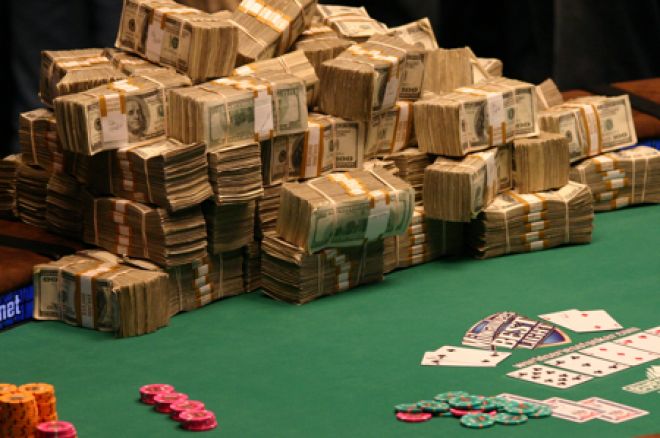Dara O’Kearney had less than a day to help his student at the WCOOP Main Event final table, this is what he shared with him.

One of my students made the final table of the recent SCOOP Main Event and asked me to help him prepare for it.
There are different opinions on how to do this when usually you have less than a day to prepare. A lot of people think the best preparation is none at all, or rather you should just concentrate on chilling and being rested. While it’s undoubtedly true that if you have only 18 hours between bagging (virtually or physically) there’s a limit to what you can do and you don’t want to tire yourself out over preparing, I’m very much in the camp that it’s a good idea to do some preparation.
This debate in some ways mirrors the one that raged in sports a century ago when most people thought athletes should rest up entirely before a big match or race, but an enlightened few understood the value of the warmup. No need to tell you which side ended up winning that one.
Think Negative!

Before I get into the specifics, here are some general guidelines:
1. Don’t wear yourself out in the warmup
As I said already, don’t over do it. In the same way an athlete doesn’t want to exhaust themselves warming up, you don’t want your brain fried before a hand is dealt on the final table.
2. Don’t change
Don’t try to learn new tricks or radically change your game. This should be like a last minute revision for an important exam.
3. Focus on specifics
Instead of trying to learn something new, focus any technical preparation on revising stuff you already know, and refining and nailing down your ranges in specific spots.
4. Remember who is in charge
Don’t let anyone be a backseat driver, not even your coach. A good coach understands that the job is to get you to execute your best game, not implement a whole new one or someone else’s.
5. Focus on the likely and important
Focus on stuff that is both likely to happen, and could potentially make a significant difference. Now is not the time to be looking at weird river check raise bluff spots, or UTG versus UTG1 play in 3-bet pots. If the seats and stacks are set for the final table, for example, look at your ranges in specific spots. Which hands should you flat and which should you 3-bet first hand against each player who could open ahead of you? What hands should you open if it’s folded to you? Which ones should be defended if you get 3-bet? What should your big blind defence look like typically against each of the final table stacks?
6. Mental preparation: think negative!
Prepare mentally for what could happen. By this, I don’t mean think positive and imagine it being plain sailing winning all the flips on the way to victory. Doing that will just set you up for upset if something goes wrong on the final table. Instead try to imagine all the things that could go wrong and mentally rehearse responding to them optimally. Imagine losing a big pot early on, or a flip, or taking a bad beat. Picture being card dead and having to deal with the frustration. By doing so, you’ll be much more likely not to let any of these setbacks upset you if they come to pass
Specific preparation

In the preparation with my student I focused on three specific things:
- ICM implications of the starting stacks and what it meant for our likely ranges at the start
- I decided to look specifically at how the ICM would change if he got five handed and the stacks levelled out. I figured this was an event where that happens often enough and in which so much equity can be lost to a mistake it was worth looking at
- I had him imagine losing a big pot or flip early, being card, and other stuff that could go wrong
There’s variance in everything, and we were very lucky in the sense that when he got five handed the stacks had levelled out so that particular preparation was very useful, but also he was card dead for almost the entire final table so the fact that he had prepared mentally specifically for such an eventuality he was able to take it in his stride.
After the session, he went off to watch some final tables to get himself into final table frame of mind, but before he did he said something that was music to my ears:
“That was very helpful even though it was stuff I kinda already knew, but it nailed it down for me”.
You can get advice like this every month in Dara’s free strategy newsletter which you can join right here as well as his book Poker Satellite Strategy.
More from Dara O’Kearney
source https://casinonewsblogger.com/how-to-prepare-for-a-big-final-table/
No comments:
Post a Comment